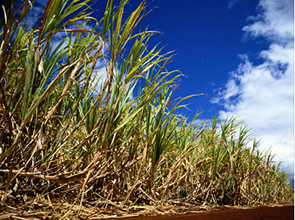The Swedish government and its private sector are hoping to secure a foothold in Botswana’s nascent biofuels industry that kicked off recently with plans for a five million-litre per annum processing plant.
According to a Memorandum of Understanding signed between the two countries on Tuesday, Sweden has identified several projects, including the budding biofuel industry, as areas for cooperation.
Specifically, the Swedes hope to be involved in jatropha research, the “wonder plant” whose cultivation and oil are expected to fuel the processing plant government plans to purchase this year. Botswana plans to switch the processing plant’s feedstock from animal fats to jatropha after 2016 and is presently cooperating with Japan in an intensive research project.
According to the MoU, the Scandinavian nation is also interested in biodiesel production from animal fat and biogas production from cow dung. Both are alternative energy sources and are at varying degrees of research and implementation in Botswana.
“The MoU is a good way of continuing and broadening the already existing cooperation between our energy industries,” Swedish Deputy Director of Trade and Investment (Africa), BrittMarie Hartvig, told BusinessWeek.
“It’s up to the parties who signed to develop these projects further, although there’s a lot of them that have to be identified.
“We are putting the MoU in the private sector’s hands and it is able to take it forward. We have planned also bilateral forums with Botswana to implement aspects of the MoU.” A perusal of the MoU shows a bias for renewable energy projects such as development of a 188-megawatt solar power system, solar thermal power stations and solar water heaters. The Swedes also hope to cooperate with Botswana in the development of strategies on energy efficiency for the transport sector, as well as on renewable energies and biomass – the renewable energy from biological material.
[ad]
Speaking at a roundtable between local agencies and the 26-strong Swedish business delegation, Botswana Power Corporation (BPC) CEO, Jacob Raleru, noted that the country had several initiatives already afoot regarding renewable energy.
He stressed that the country’s energy policy requires 25 percent of all electricity to be from solar power by 2030. “We are responsible for implementing government policy, which includes renewable energy,” Raleru told the Swedish business delegation.
“Through government, we are facilitating a feasibility study for a 200MW solar power station. After this, implementation will be put to the private sector and others.
“Our parent ministry has also just completed a study on Renewable Energy Feed-in Tariffs, while a one megawatt pilot solar project is in progress funded by the Japanese.
“If this is successful, we plan to extend it outside Gaborone. In addition, we have a subsidiary called BPC Lesedi, which is also offering home solar systems to rural consumers and others.” The Minister of Foreign Affairs and International Cooperation, Phandu Skelemani, signed the MoU on behalf of Botswana while Swedish Minister of International Development Cooperation, Gunilla Carlsson, signed on behalf of her country.


